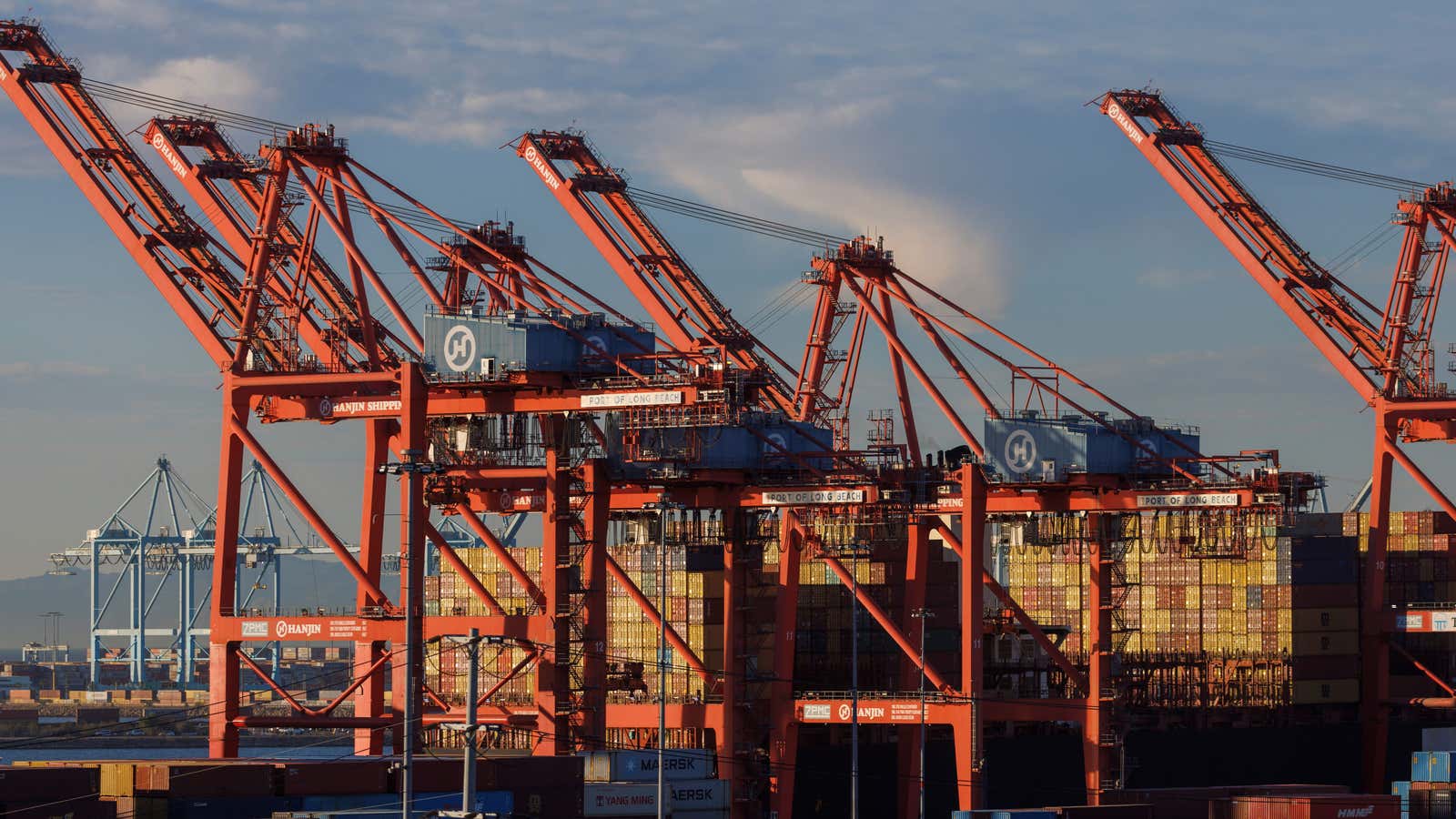Cybercriminals have started to target some of the world’s biggest logistics companies at a precarious moment for supply chains. The attacks threaten to disrupt global efforts to clear out the backlogs of undelivered cargo choking ports and warehouses to ease freight delays and high shipping prices.
Expeditors, a Seattle-based company that coordinates land, sea, and air shipments in over 300 locations around the world, was hacked on Feb. 20. The company shut down most of its IT network and said it has “limited ability to conduct operations.” Cybersecurity analysts suspect the hack was a ransomware attack, in which cybercriminals lock up a company’s data and demand a ransom in exchange for its safe return.
Expeditors is the world’s sixth largest freight forwarder—a middleman that helps businesses book space on trucks, container ships, and cargo planes. The firm coordinated over 900,000 metric tons of air cargo shipments and 1.1 million containers of ocean freight shipments in 2020. While its systems are down, Expeditors can’t book any new shipments, track where existing cargo is, or shepherd it through customs at ports around the world. The company’s paralysis may drag on for weeks as cybersecurity consultants work to restore its IT network.
Not the only ransomware attack in the logistics sector
Expeditors is the second big freight forwarder to be hacked in recent months. In December, Hellmann Worldwide Logistics—which in 2020 handled 900,000 containers of ocean shipments and 550,000 metric tons of air cargo shipments—suffered a ransomware attack that disrupted operations for weeks.
Meanwhile, a ransomware gang claimed responsibility for hacking US trucking company Marten Transport in October, and the Port of Houston reported that it had fended off an attempted hack in August. Cybercriminals are reportedly advertising access to supply chain companies’ IT networks in posts to hacker forums.
Supply chain companies are flush with pandemic profits
Supply chain companies have become attractive targets for cyberattacks during the pandemic. Cargo prices have skyrocketed and generated record profits for logistics businesses, which are now sitting on big cash reserves. Expeditors, for instance, has $1.7 billion in cash and cash equivalents on its 2021 balance sheet.
Meanwhile, supply chain companies are under extreme pressure from clients and governments to restore smooth operations, after a year in which shipping costs ate into retailers’ profit margins and contributed to inflation. That creates a strong incentive for logistics firms to get back online as fast as possible after a hack—which might mean paying a ransom.
